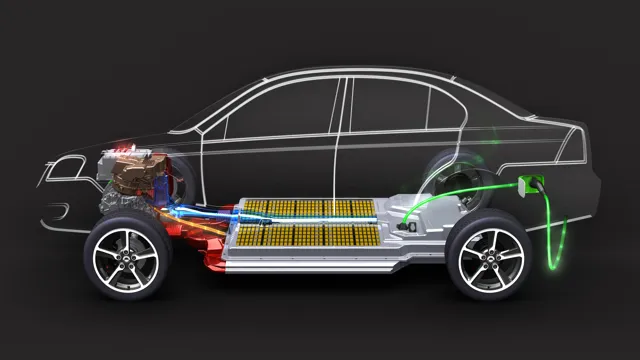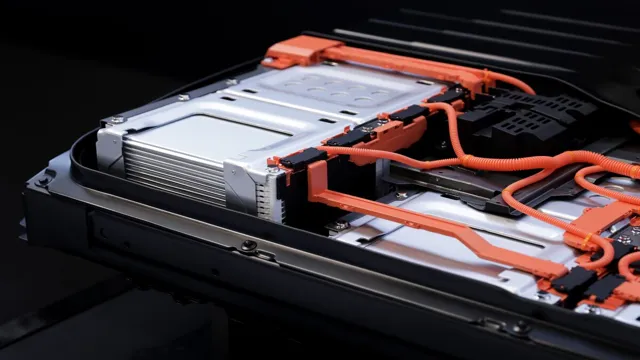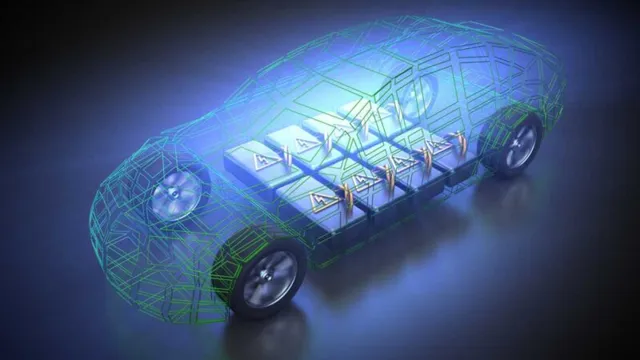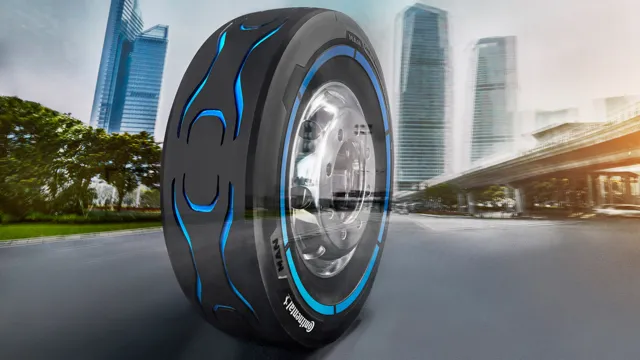Power Up Your Electric Engines: A Guide to Choosing the Best Batteries Beyond Cars
Electric cars are gaining popularity, and one of the essential components of these vehicles is their battery. When it comes to electric engines, batteries are the lifeblood that keeps them running. Without them, electric cars wouldn’t be able to go the extra mile and provide a sustainable way to commute.
In this complete guide, we’ll delve into everything you need to know about electric engine batteries, from how they work to their lifespan and replacement costs. So, whether you’re a seasoned EV owner or just curious about the technology, read on to discover the ins and outs of electric engine batteries.
Understanding the Types of Electric Engines
Electric engines are becoming increasingly popular thanks to the advancements in battery technology. However, not all electric engines are created equal – there are different types of electric engines, each with their own pros and cons. One type of electric engine that isn’t used in cars is the one used for industrial purposes.
These engines require powerful batteries that can deliver high levels of torque, often for extended periods of time. They are used in applications such as forklifts and industrial machinery where reliability and performance are crucial. In contrast, electric engines used in cars need to be more efficient and lightweight, as well as having relatively high power density.
This means that the batteries used in cars are optimized for maximum range and performance, without compromising on safety and reliability. Whatever the application, it’s clear that battery technology is rapidly changing the game when it comes to electric engines, with more powerful and efficient batteries becoming available all the time.
AC Propulsion Motors vs. DC Motors
Electric Engines If you’re looking to buy an electric vehicle, it’s important to know the difference between the two main types of electric engines: AC propulsion motors and DC motors. AC propulsion motors are efficient, powerful, and reliable. They use alternating current to generate torque, and they can be found in many modern electric vehicles.
On the other hand, DC motors are less common, but still used in some electric vehicles today. DC motors are simpler and more affordable, but they aren’t as efficient as AC propulsion motors. They also require regular maintenance to keep them running smoothly.
When choosing an electric vehicle, it’s important to consider the type of electric engine it uses, as this can impact performance and reliability. Ultimately, the choice between AC propulsion motors and DC motors comes down to personal preference and the specific needs of the driver.
Brushed vs. Brushless Motors
Electric Motors Electric motors are commonly used to power everything from household appliances to industrial equipment. Two of the most popular types of electric engines are brushed and brushless motors. A brushed motor works through the friction caused by carbon brushes that make contact with a rotating commutator.
In contrast, brushless motors are electronically controlled and use a permanent magnet to produce movement. Brushed motors are often more affordable and compact, but they tend to be less efficient and have shorter lifespans than brushless motors. On the other hand, brushless motors are more powerful, durable, and efficient, making them ideal for heavy-duty applications.
Despite their differences, both types of electric motors have their unique advantages and disadvantages, making it important to choose the right one based on your specific needs.
Choosing the Right Battery for Your Electric Engine
When it comes to choosing the right battery for your electric engine, it’s important to understand that not all batteries are created equal. Batteries for electric engines are designed specifically for use in electric vehicles, electric boats, drones, and other electrically powered machinery. These batteries are engineered to deliver high-performance power and long-lasting durability, making them the ideal choice for anyone looking to power their electric machines.
When shopping for batteries, it’s important to consider factors like voltage, capacity, and discharge rate to ensure you choose the right battery for your specific needs. With the right battery, you can enjoy reliable power and maximum performance, whether you’re cruising on the water or racing down the road.
Lithium-Ion vs. Lead-Acid Batteries
When it comes to choosing the right battery for your electric engine, there are two main options to consider: lithium-ion and lead-acid. Both types of batteries have their own advantages and disadvantages, so it’s important to determine which one is the best fit for your needs. Lithium-ion batteries are known for their high energy density, which means they can store more power in a smaller size and weight.
They are also more efficient than lead-acid batteries, meaning they can power your engine for a longer period of time. However, they are also more expensive upfront and require careful monitoring to prevent damage or overheating. On the other hand, lead-acid batteries are a more affordable option and are widely available.
They are also easier to maintain and repair than lithium-ion batteries, which can save you money in the long run. However, they are heavier and less efficient, meaning you’ll likely need to replace them more often than lithium-ion batteries. Ultimately, the best battery for your electric engine will depend on your specific needs and budget.
Consider factors such as energy requirements, usage patterns, and maintenance needs when making your decision. Whichever type of battery you choose, remember to invest in quality components and proper installation to ensure optimal performance and longevity.
Voltage and Capacity Considerations
When choosing a battery for your electric engine, there are two important factors to consider: voltage and capacity. Voltage determines the power output of the battery, while capacity refers to how long the battery can last on a single charge. It’s important to choose the right voltage for your engine to ensure optimal performance, while also considering the capacity to ensure that the battery can meet your power needs for an extended period of time.
Think of voltage like the size of a hose. The bigger the hose, the more water can flow through it at once. Similarly, the higher the voltage, the more power can flow through the battery at once.
This is important because the voltage needs to match the power requirements of your electric engine. If the voltage is too low, the engine won’t perform as well, but if it’s too high, it can damage the engine.
Capacity, on the other hand, is like the size of a water tank.The bigger the tank, the longer you can use the water without having to refill it. In the same way, the higher the capacity of a battery, the longer it can provide power before needing to be recharged. This is important to consider if you need to use your engine for extended periods of time without access to a power source.
When choosing a battery, it’s important to find one that has the right combination of voltage and capacity for your specific needs. A battery with a high voltage and low capacity might be great for short bursts of power, while one with a lower voltage and higher capacity might be better for longer periods of use. Ultimately, choosing the right battery comes down to understanding your power needs and finding a battery that can meet them.
Factors to Consider When Selecting a Battery
When it comes to selecting a battery for your electric engine, there are a few key factors to keep in mind. First and foremost, you’ll need to consider the power requirements of your engine. This will determine the voltage and current rating you need for your battery.
It’s also important to think about the physical size of the battery, as well as its weight and overall capacity. You don’t want to end up with a battery that’s too heavy or too large for your setup. Additionally, you’ll want to consider the type of battery chemistry that’s best suited for your needs.
Popular options include lithium-ion, nickel-metal hydride, and lead-acid batteries. Ultimately, the right choice will depend on your specific application and preferences. By taking into account these factors, you’ll be able to choose the right battery to power your electric engine and keep it running smoothly.
Maintenance Tips for Electric Engine Batteries
When it comes to the batteries for electric engines, there are a few maintenance tips that can help prolong their lifespan. Firstly, it’s important to ensure that the battery is always properly charged and not overcharged. Overcharging can cause damage to the battery and lead to a shorter lifespan.
Secondly, it’s a good idea to regularly clean the battery terminals and ensure they are free from any corrosion or build-up. This can be done using a solution of equal parts water and baking soda applied with a soft brush. Finally, when not in use for prolonged periods, it’s best to store the battery in a cool and dry location to prevent any potential damage.
By following these simple tips, you can help ensure that your batteries for electric engines not for cars continue to provide efficient and reliable performance for years to come.
Charging and Discharging Practices
When it comes to maintaining your electric engine battery, proper charging and discharging practices are critical to ensure it lasts as long as possible. One important tip to keep in mind is to avoid overcharging your battery. Charging it beyond its capacity can cause overheating and ultimately reduce its lifespan.
Additionally, you should aim to charge your battery before it fully depletes to prevent any stress on the battery. On the other hand, discharging your battery too much can also cause damage to it. It’s essential to avoid leaving your battery with a low charge for an extended period.
Keeping your battery maintained will ensure it provides the best performance and longevity. Remember, your electric engine battery is the heart of your electric vehicle, and taking the time to care for it properly will ultimately save you money and keep you on the road for many miles.
Storage and Transportation Guidelines
Electric engine batteries require proper maintenance to ensure their longevity and performance. To start, avoid storing or transporting batteries in extreme temperatures. This means keeping them out of direct sunlight and away from freezing temperatures.
Additionally, make sure to keep them clean and dry, and avoid exposure to moisture. It’s also important to regularly check the battery’s charge level and recharge it as needed. When transporting batteries, use a sturdy and reliable container that provides ample cushioning and protection.
It’s crucial to avoid dropping batteries or exposing them to any significant impact during transportation. By following these simple maintenance tips, you can help ensure your electric engine batteries remain fully functional and efficient for years to come.
Where to Buy Batteries for Your Electric Engine
If you’re looking for batteries for your electric engine, there are a few reliable sources to turn to. First, check with your electric engine manufacturer to see if they offer their own brand of batteries. This can ensure that you get a battery specifically designed for your engine, which can optimize its performance.
Another option is to check with specialty battery retailers, like Battery Universe or Battery Mart. They can offer a wide variety of battery types and brands, and can often give you recommendations based on your specific needs. It’s also a good idea to research and compare prices and warranties to find the best deal for your budget.
Keep in mind that batteries specifically designed for electric engines are not the same as those used in cars, so make sure you get the right kind to ensure your electric engine operates at its best.
Conclusion
In conclusion, batteries may not be suitable for powering cars, but they are the future of electric engines. They provide efficient and reliable energy for a variety of applications, from powering portable devices to operating heavy machinery. So, let’s stop trying to fit square batteries into round car-shaped holes and instead focus on harnessing their power for the exciting possibilities of the electric engine industry.
After all, who knows what kind of ingenious and unexpected applications we may discover for these versatile power sources in the years to come!”
FAQs
What type of batteries are suitable for electric engines?
It is recommended to use specialized batteries specifically designed for electric engines, not for cars.
Can I use regular car batteries for my electric engine?
No, regular car batteries are not suitable for electric engines. You need to use batteries that are specially designed for electric engines.
What is the difference between batteries for electric engines and batteries for cars?
Batteries for electric engines are designed to provide high power output for extended periods of time, while car batteries are designed to provide a short burst of power to start the engine.
What are the advantages of using specialized batteries for electric engines?
Specialized batteries for electric engines are designed to provide high power output for extended periods of time, which is essential for the proper functioning of electric engines. They are also more durable and have a longer lifespan compared to regular car batteries.
Can I use batteries designed for electric bikes or scooters for my electric engine?
While batteries designed for electric bikes or scooters may work for small electric engines, it is best to use specialized batteries designed specifically for the size and power requirements of your electric engine to ensure optimal performance and safety.






